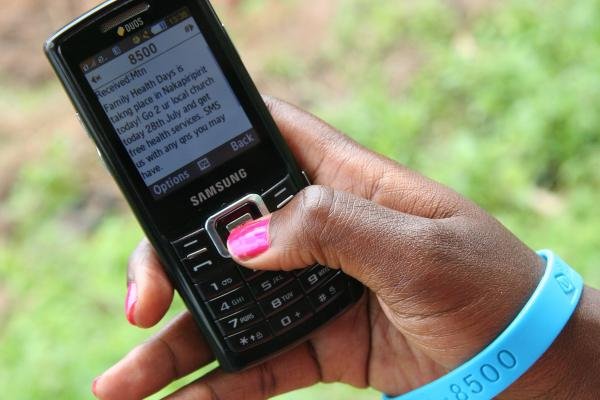U-Report
MLC Vanguard | Created by UNICEF
U-Report is a platform for young people to receive information and provide legislators and service providers with feedback on topics that matter to them in a confidential and anonymous way. It works by users signing up to U-Report via one of the channels (Facebook Messenger, WhatsApp, Viber, or SMS) after which they are U-Reporters. U-Reporters receive weekly polls about relevant topics, they can look for information in the U-Report chatbot universe, or engage in 1-on-1 counselling sessions with volunteers on specific topics.
1,521,469 Lives Impacted
The purpose of U-Report is to empower youth to make positive change in their community, at national, and even global level. Thus, everyone in the "community of change" will benefit from the impact of the innovation.
A few examples of U-report’s impact:
Indonesia: Response to Palu Earthquake/Tsunami
On 28th September,2018 a series of earthquakes/Tsunami struck Indonesia Central Sulawesi’s province, the strongest a 7.4 magnitude with its epicenter close to provincial capital, Palu. Following the earthquake, tsunami and subsequent landslides and liquefaction over 2000 people died. Infrastructure and basic services badly affected and thousands of people have been left displace in temporary shelters with host families and friends. U-Report was used to identify the needs of the affected population from earthquake and Tsunami during the emergency phase in October 2018 through sending polls to users and analysing the data in real-time.
El Salvador: Banning child marriage
El Salvador is amongst the countries with the highest prevalence of child marriage and early unions (29%) in Latin American. The 2014 National Health Survey (MICS) revealed that 29% of women between 20 and 49 years old had married before turning 18. Article 14 of the Family Code provided that girls, regardless of their age, could marry if they were pregnant or had a child. In practice, this provision only favored perpetrators of sexual abuse, giving them the opportunity to evade the penal system by marrying their victims, and perpetuate the cycle of impunity. In August 2017, U-Report results were used to reform the country’s Family Code in Parliament, banning child marriage forever.
The Innovation
U-Report is a youth empowerment platform that confidentially and anonymously addresses issues of missing youth representation in decision making at both local, national and global level. Youth populations are consistently under-represented in local and national decision making in spite of making up more than half the population in many developing countries; Nigeria, Chad, Angola, Mali, Somalia, Gambia and Zambia all have over 50% of their population under 18 years of age. In spite of making up large parts of the global population - and in particular the population of the global south - young people are lacking channels to raise their voices on issues that matter to them, young people lack access to information that is relevant to their lives, and they lack reporting mechanisms to hold authorities and service providers accountable. U-Report is addressing this challenge.
U-Report is a social messaging tool, in the form of a packaged product built on the RapidPro open source software that enables and empowers people to speak out and provide their perspective on a wide range of important issues in their communities. U-Report is a free, confidential and anonymous, non-exclusive tool for community participation that aims to empower young people to engage in citizen-led development and create positive change.
The purpose of U-Report can be characterized by nine goals:
Empower young people to share opinions on issues that matter to them.
Ensure U-Reporters get value from their participation.
Provide valuable information to community members and government.
Amplify voices for advocacy at local, national and global levels.
Reduce the distance between government and constituents.
Use citizen data to improve accountability and strengthen humanitarian and development programmes.
Influence positive behavior change.
Ensure U-Reporters are given feedback on how data is used.
Use the tools available to provide virtual health, education and protection services.
Implemented in
Nigeria, Uganda, Burundi, Zambia, Liberia, Mali, Chile, Sierra Leone, Indonesia, Cameroon, , Democratic Republic of the Congo, Central African Republic, Eswatini, Senegal, Mexico, Pakistan, Zimbabwe, Mozambique, Ukraine, Guinea Burkina Faso, Ireland, Brazil, Malaysia, Myanmar, UK, France, India, South Africa, Thailand, Syria, Chad, Papua New Guinea, Guatemala, Cote d'Ivoire, Tunisia, Tanzania, El Salvador, Nepal, Malawi, Moldova, New Zealand, Albania, Kosovo, Montenegro, Bangladesh, Argentina, Vietnam, Jamaica, Belize, Congo Brazzaville, Trinidad and Tobago Ghana, Uzbekistan, Bosnia Herzegovina, Serbia, Gambia, Romania, Bolivia, Botswana, Haiti, Ecuador, Honduras, Philippines.
Get in touch
Mathias Devi
About UNICEF
UNICEF, in full originally called the United Nations International Children's Emergency Fund, now officially United Nations Children's Fund, is an agency of the United Nations responsible for providing humanitarian and development aid to children worldwide. The agency is among the most widespread and recognizable social welfare organizations in the world, with a presence in 192 countries and territories. UNICEF's activities include providing immunizations and disease prevention, administering treatment for children and mothers with HIV, enhancing childhood and maternal health, nutrition, improving sanitation, promoting education, and providing emergency relief in response to disasters.



